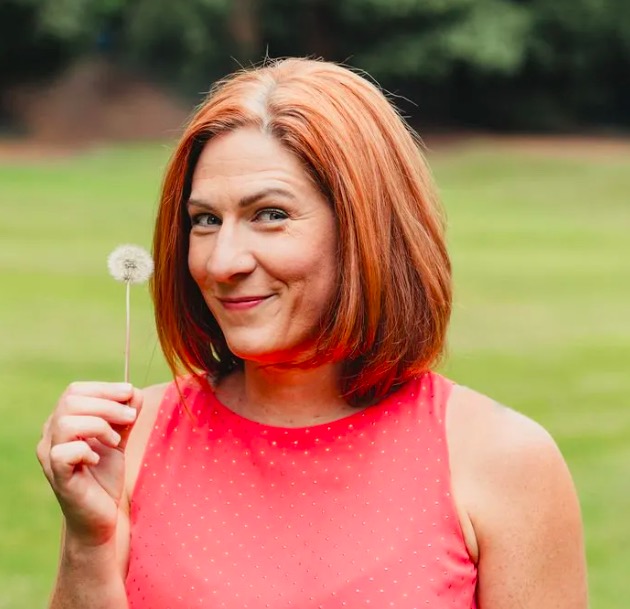How to sleep better: the complete guide to falling asleep faster, sleeping deeper, and waking refreshed
Quality sleep is vital for physical and mental health and our complete guide has all the expertise you need to improve your night’s rest

Sarah Warwick

Design expertise in your inbox – from inspiring decorating ideas and beautiful celebrity homes to practical gardening advice and shopping round-ups.
You are now subscribed
Your newsletter sign-up was successful
Want to add more newsletters?
Sleeping well has profound effects. Good quality sleep is proven to enhance mood, protect health, and even optimize productivity. Sleep badly and adverse consequences across all these measures can be the result.
Modern life can interfere with sleep patterns. Irregular routines and extended screen time and a mattress that’s no longer supportive or not suited to individual sleepers can all reduce the quality of sleep. Even room design errors can disrupt rest.
To enable you to sleep better, we’ve compiled a complete guide to allow you to fall asleep fast, sleep deeply, and wake refreshed. It combines expert advice, real-life tips, and our H&G tested methods to bring you the restful and restorative nights you need.
1. Establish your perfect sleep schedule
Establishing your perfect sleep schedule is one of the simplest and best sleep hacks to try. You’ll need to know what the latest research says about how much sleep individuals need, the routines that promote good sleep, and understand what sleep hygiene is.
How much sleep do you need?
It’s widely claimed that the amount of sleep we should all be getting is eight hours, but is that actually what the science says? Research by the National Sleep Foundation indicates that the vast majority of adults need between seven and nine hours of sleep every night.
'Sleep needs vary from person to person, and they also change developmentally,' explains Horacio de la Iglesia, a biology professor at the University of Washington. 'Infants may need 16+ hours, children more than 10 depending on the age, teenagers between nine and 10, and adults about eight hours.'
For a very small minority of people, even if they sleep for around five hours every night they can function properly, and experience no negative consequences. However, this is incredibly rare, estimated at less than 1 per cent of the population.
Design expertise in your inbox – from inspiring decorating ideas and beautiful celebrity homes to practical gardening advice and shopping round-ups.
Therefore, the eight hour rule is a good average to aim for. But what’s right for you will depend on other factors such as age, how active you are, and whether the sleep you are actually getting is quality sleep.
Create your individual sleep schedule
Knowing how long you might need to sleep is a great starting point for creating your sleep schedule and, while individual schedules can be different, each person’s has something in common, says sleep coach Tracy Hannigan.
'A healthy sleep schedule would be set by waking at a certain time each day with enough energy to go about the whole day, would enable them to fall asleep within 20 minutes, and would allow them to wake a couple of times in the night but to fall back to sleep relatively quickly,' she says.
Setting a consistent sleep window also requires a regular bedtime. 'Don’t worry if you have one odd late night or sleep in, but try and avoid doing it every day,' says Tracy.
What is sleep hygiene?
Sleep hygiene refers to the good practices that help us promote and maintain healthy sleep patterns. Used well, they help us fall asleep and stay asleep, enjoy better, rejuvenating rest – and a personalized sleep schedule is an important element of it. But what’s also vital are the other elements of what’s collectively known as "sleep hygiene".
- Cut out stimulants. Caffeine late in the day should be avoided and bear in mind that both sugar and alcohol can also disrupt sleep cycles. Don’t exercise vigorously close to bedtime, either.
- Get more sunlight. Go outside if you can, when the sun comes up or in the middle of the day in winter, and if you can't do that, sit near a window for a while, advises Tracy.
- Try a smartwatch or a sleep tracker. One of these can give you feedback on your sleep and most sleep trackers will also help guide you into a window when you should be getting ready for bed. Fitbit's Inspire 3 is Amazon's most highly rated buy with over 4,000 positive reviews.
- Turn off devices in the period before bedtime. They can make it easy to ignore the cues that we’re tired, so switch off an hour beforehand.
- Keep the bed for sleep – by which we mean don’t work there, eat takeout and, ideally, don’t watch TV. It should be associated with sleeping.
- Get the temperature right. For better sleep a bedroom should be relatively cool. Between 67 and 69°F is ideal. More on this below.
- Create comfort with a supportive mattress and with bedding that’s suited to your climate and the time of year. We go into more detail on this below.

Tracy Hannigan is one of the UK's leading sleep coaches. Having suffered for years with insomnia herself, she found a cure in sleep therapy based on cognitive behavioral therapy for insomnia and now helps adults overcome a number of sleep-related issues.
What is the 10-3-2-1-0 sleep rule?
The 10-3-2-1-0 sleep rule can be a useful reminder of some of the steps of good sleep hygiene. Its elements?
- 10 hours before bed – cut out caffeine
- 3 hours before bed – stop drinking alcohol
- 2 hours before bed – stop working
- 1 hour before bed – turn off your screens
- 0 – never snooze your alarm
Homes & Gardens’ Holly Reaney tried it out and says, ‘Yes, without doubt I felt more relaxed by the time I went to bed, so falling asleep was easier. I'm pretty sure my daytime stress was reduced too, whether because I was better rested or because my evenings had been more relaxing, I'm not sure. Either way, I'd recommend this simple to follow rule.’
And if you aren’t a morning person, and you do use the snooze button, you might like to take a lead from Homes & Gardens’ self-confessed morning-loather Megan Slack. Megan tried the 5-second rule (inspired by Mel Robbins' theory and explained in her book of the same name (available here on Amazon)), which says that you have the instinct to act on a goal (or an unpleasant task) if you physically move within 5 seconds. If 5 seconds pass, your brain will remove the need, and you are less likely to act as time goes on.
Counting down from five after her alarm went off, Megan instituted the habit of getting out of bed when she reached a count of one and says, ‘While I can say that I will never love mornings, this mindset makes them feel notably more seamless.’
2. Fall asleep faster
While you can set up a sleep schedule and practise good sleep hygiene, if you’re still struggling to nod off, it’s time to call on the proven tricks for falling asleep.
Use sound
Sound can be a great sleep aid and the Sleep Foundation notes that studies have shown it decreases the time it takes to fall asleep and improves sleep quality.
It’s thought that the effect is due to music’s power to decrease levels of cortisol and the release of the hormone dopamine. Amazon has a sleep music section, which includes not just music but speakers, headphones for sleeping and sleep masks; it's worth exploring if only for research purposes. If music, or indeed podcasts, aren't what sends you to sleep, you may find white noise speakers (again, a good selection on Amazon to research) are what helps you.
Reduce anxiety around sleeping
The way you feel about finding it difficult to fall asleep can delay sleep, so you might want to follow the recommendation of sleep psychologist Dan Ford from The Better Sleep Clinic and try out what’s known as paradoxical intention, which research has shown to lessen the anxiety around not being able to fall asleep and reduce the time it takes to get to sleep.
You’ll need to lie in bed with the lights out and your eyes open. 'When your eyelids feel like they want to close, you say to yourself gently – "just stay awake for another couple of minutes; I'll fall asleep naturally when I'm ready",' explains Dan. 'You don't purposefully make yourself stay awake, but if a person can shift the focus away from attempting to fall asleep, they will find that sleep comes naturally.'
Try mindfulness
Mindfulness can also be a way to relax at bedtime to help you fall asleep faster. Psychotherapist Lauren Farina explains that mindfulness is non-judgemental present-moment awareness and suggests meditation – for which you might find guided meditation apps and videos helpful – or breathwork.
'I especially like a form of breathwork called box breathing,’ she says. ‘Inhale through the nose for the count of four, then hold that breath for the count of four, and finally, exhale through the mouth for the count of four. Just two to five minutes of breathwork once or twice a day is enough to experience its calming and stress-mitigating effects.'
Consider supplements
Magnesium – which Dr. Erin Stokes, Medical Director at MegaFood, says is all too often lacking in American diets – can be a beneficial addition to your bedtime routine. 'It can help ease muscle tension and promote a sense of calm and relaxation,' she explains. She says that she takes a magnesium supplement nightly to help her unwind at night. 'Many people also like to wind down with a warm bath or shower before bed,' she adds, and taking a magnesium-rich Epsom salt bath may also help do the trick.
Pure Encapsulations Magnesium (Glycinate) capsules at Amazon has over 30,000 positive reviews; Dr Teal's Pure Epsom Salt, Restorative Minerals with Magnesium, Potassium & Zinc (also at Amazon) is the top-rated salt bath, too.
3. How to prioritize sleep, even during busy or unusual times
Holidays, vacations and other occasions when your schedule changes can disrupt sleep patterns, but you can prioritize high quality sleep even at those times with these sleep tips.
Eating more than usual, drinking alcohol and napping can all interfere with sleep. Try to stay awake after a big midday meal and go for a walk or help with the cleanup to improve digestion.
'You can enjoy a drink or two but do so early into the evening, ideally 4 hours or more before your bedtime, so the alcohol can process through the stomach and have as minimal an impact on sleep as possible,' recommends clinical psychologist Dr. Leah Kaylor.
And if you do need to nap, stick to 15 to 30 minutes only to recuperate but prioritize nighttime sleep.
If you’re planning to go abroad, adjust your sleeping before you go. 'Shift your bedtime and wake-up time gradually towards the schedule you’ll be on at your destination,' suggests Dr Mark Aloia, head of sleep and behavioural sciences, SleepIQ Health at Sleep Number.
Bringing something familiar with you can also help whether you’re in your usual time zone or not. Think something that helps you sleep like an eye mask or an object that smells like a loved one.
A favorite trick for Homes & Gardens' team members when we’re away? Use a sleep spray at home for a couple of weeks before you travel then pack it to use at your destination. 'This Works Deep Sleep Pillow Spray (at Amazon) is perfect for me because I am quite sensitive to strong smells,' says Digital Editor Jen Ebert. 'I use it as a pillow spray at night, but it's wonderful as a linen spray, generally.'

Dr. Mark Aloia is the Head of Sleep and Behavioural Sciences, SleepIQ Health at Sleep Number, where he oversees sleep science research, partnerships and collaborations with the world’s leading physicians, researchers and institutions, as well as the development of health-focused innovations. As a distinguished sleep specialist, Mark serves as a valuable resource for Sleep Number’s NFL partners, providing in-depth consultations to teams and individual players to help them gain insight into how their sleep can affect their on-field performance, recovery and overall health and wellbeing, as well as how to optimize their sleep when traveling across time zones for games.
4. Create the ultimate sleep environment – what's stopping you sleeping well?
Your schedule and your habits are important factors in your ability to fall asleep easily, sleep deeply, and wake refreshed, but as you’ll already have noted from some of our advice, above, creating the best sleep environment is also crucial.
As well as designing a bedroom for better sleep (which we go into in greater detail in our dedicated feature) or drawing on the wisdom inherent in bedroom feng shui or Japanese sleep secrets, there are plenty of other elements of your sleep setup you should check and adjust if necessary, and there are strategies you might try, too.
Pick a mattress and bedlinen that bring better sleep
Optimize comfort for an improved night’s sleep. That means the right mattress type to fit your sleep position – whether that’s side, back, or stomach.
As for the best bed sheets, choose materials that will help you achieve the right body temperature to promote better sleep. Breathable fibers such as cotton and linen are naturally temperature regulating, wicking away moisture from skin.
We go into greater detail in our dedicated guides.
Think heat, light and noise
As we said above, maintaining the ideal bedroom temperature of between 67 and 69°F can help you sleep more deeply, but it’s also vital to think light and noise.
Blackout shades or heavy drapes can stop sleep being disrupted by exterior lighting in your neighborhood and early sunrises. For the room’s lighting, opt for a warm white bulb (2700-3000K) to create a relaxing ambiance at bedtime.
Window treatments in heavy fabrics that prevent light outside compromising sleep can also help keep a bedroom quieter so your rest isn’t disturbed. Carpet or a large area rug can deaden sound in the room, too. If the noise is inside your bedroom, ask a snorer to sleep on their side or even use a nasal dilator (plenty of choice on Amazon) or try a white noise machine (Amazon's Magicteam Sound Machine has around 60,000 positive ratings). Of course, you can also resort to ear plugs – we like Loop Quiet Ear Plugs from Amazon – whether the noise is inside or out.
Should you sleep with a window open?
Cooling a bedroom by opening the window at night is a no-brainer in summer, but it’s recommended to do so in winter, too.
Fatemeh Farahan, licensed psychotherapist and author of Wired For Happiness (available at Amazon) explains, 'When it comes to sleep, a bit of cool, fresh air can actually help – especially since cooler temps support our natural drop in body temperature that kicks off sleep.'
There are limits, though. If it gets down to freezing, keep the window shut since being too cold will disrupt sleep.
Consider a sleep divorce
You don’t need a lawyer for this: a sleep divorce means sleeping in separate bedrooms and it can bring better sleep and could even make you a happier couple.
'We know that poor sleep can worsen your mood, and those who are sleep deprived are more likely to argue with their partners,' explains Dr. Seema Khosla, pulmonologist and spokesperson for the American Academy of Sleep Medicine. ‘There may be some resentment toward the person causing the sleep disruption which can negatively impact relationships.'

Dr Khosla is the medical director of the North Dakota Center for Sleep. She is also a fellow of the College of Chest Physicians, and she is also a fellow of the American Academy of Sleep Medicine (AASM). Dr Khosla was the inaugural chair of the Clinical and Consumer Sleep Technology Committee, and she is the current chair of the AASM Public Awareness Advisory Committee.
Adopt the Scandinavian sleep method
If a sleep divorce is too radical, or the problem isn’t a snoring bedfellow, the Scandinavian sleep method could be the way to go instead. Rather than share a comforter as well as a bed, follow the example of Scandinavians who opt for a single comforter per person. This way, you avoid the nighttime comforter hogging that some of us are guilty of when we’re supposed to be sharing.
The other benefit? You can each choose a comforter that keeps you at the right temperature rather than sharing one that might leave one of you too hot and the other too cold.
Use lavender pillow spray
The quest for the best sleeping environment might have led you to ask whether lavender pillow spray actually works. We mentioned these above, and they are a firm favorite of the Homes & Gardens team for promoting sleep. However, the official answer is that although there has been research, there are a number of reasons why it’s hard to draw firm takeaways from them, according to Jeff Kahn, co-founder and CEO of Rise Science.
However, lavender sprays are still worth trying. 'We do know being relaxed before sleep is an essential ingredient to getting enough healthy sleep,' says Jeff. 'And we also know lavender aromatherapy is pretty safe. So, if you find lavender sleep sprays help relax you before bed and fall asleep, or if you’re curious whether they’ll work for you, there’s no reason not to use them or try them.’
5. Try smart products for better sleep
Clever buys also contribute to a better night’s sleep and a more gentle awakening in the morning and you can combine tech with more traditional solutions.
- Sunrise alarm clock One of these will raise the level of light in a bedroom to mimic the sun coming up, helping to tell your body to reduce the production of sleep hormones such as melatonin and increase wakeful hormones like cortisol. Some also provide a sunset simulation where the light fades down, which can help you fall asleep. Best overall in Homes & Gardens’ testing is the Lumie Bodyclock Shine 300 (available from Amazon), which has both sunrise and sunset settings, doubles as a reading lamp, and lets you choose radio or a choice of alarm sounds instead.
- Guided app If winding down to sleep is an issue, check out the Dowdow Plus (from Amazon). It has a calming light and guided app designed to quiet a busy mind and lull you to sleep as the gentle rhythm slows your breathing.
- Sleep tracking pad As an alternative to a sleep tracker, and providing an array of insights into your sleep patterns, check out the Withings Sleep Tracking Pad (at Amazon). This under-mattress sleep sensor offers sleep cycle analysis (deep, light, and REM) with a numerical sleep score, heart rate tracking and snore detection that can be analyzed via its accompanying app.
- Weighted blanket If you prefer a low tech aid to better sleep, a weighted blanket is celebrated by many as sleep inducing as well as stress relieving. We like the Bearaby Weighted Blanket (on Amazon). Made from sustainable cotton, it’s breathable so you don’t overheat.
- Lavender pillow spray We saw, above, that the research doesn’t confirm that it works but members of the Homes & Gardens’ team have definitely found it an aid to relaxing and falling asleep, and several of us are fans of thisworks Deep Sleep Pillow Spray (available from Amazon).
Good sleep really is transformative, helping us get sick less often, maintain a healthy weight, reduce stress, improve heart health, lower the risk of chronic conditions, and improve attention and memory, according to the CDC.
To make changes that stick if you need to sleep better, pick just one section of our guide and try out some of our suggestions tonight. You can further make sure to optimize your chances of more restful and restorative sleep by checking out our best mattress guide; discovering the best duvet inserts; and choosing noise-reducing window coverings for your sleep space.

Emilia is our resident sleep writer. She spends her days tracking down the lowest prices on the best mattresses and bedding and spends her nights testing them out from the comfort of her own home. Emilia leads a team of testers across America to find the best mattress for every sleep style, body type, and budget.
Emilia's quest to learn how to sleep better takes her all around the world, from the 3Z mattress factory in Glendale, Arizona to the Hästens headquarters in Köping, Sweden. She's interviewed luxury bedding designers at Shleep and Pure Parima, as well as the Design Manager at IKEA. Before she joined Homes & Gardens, Emilia studied English at the University of Oxford.
- Sarah WarwickContributing Editor